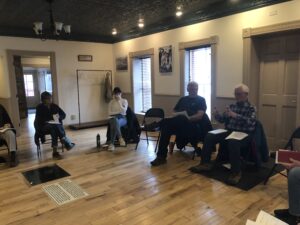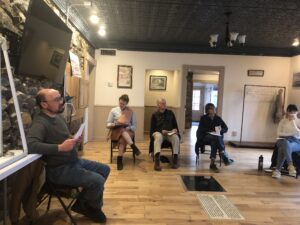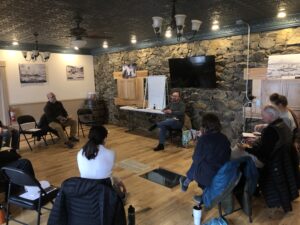[et_pb_section fb_built=”1″ _builder_version=”4.16″ custom_padding=”0|0px|13px|0px|false|false” global_colors_info=”{}” da_is_popup=”off” da_exit_intent=”off” da_has_close=”on” da_alt_close=”off” da_dark_close=”off” da_not_modal=”on” da_is_singular=”off” da_with_loader=”off” da_has_shadow=”on” da_disable_devices=”off|off|off”][et_pb_row _builder_version=”4.16″ background_size=”initial” background_position=”top_left” background_repeat=”repeat” global_colors_info=”{}”][et_pb_column type=”4_4″ _builder_version=”4.16″ custom_padding=”|||” global_colors_info=”{}” custom_padding__hover=”|||”][et_pb_divider color=”#02a2c8″ divider_weight=”15″ _builder_version=”4.20.2″ height=”15px” box_shadow_style=”preset1″ global_colors_info=”{}”] [/et_pb_divider][/et_pb_column][/et_pb_row][et_pb_row _builder_version=”4.16″ background_size=”initial” background_position=”top_left” background_repeat=”repeat” global_colors_info=”{}”][et_pb_column type=”4_4″ _builder_version=”4.16″ custom_padding=”|||” global_colors_info=”{}” custom_padding__hover=”|||”][et_pb_image src=”https://originalsite.merlinccc.com/wp-content/uploads/2022/12/Ways-of-Knowing_Featured-Image_2023.png” title_text=”Ways of Knowing_Featured Image_2023″ _builder_version=”4.21.0″ _module_preset=”default” global_colors_info=”{}”][/et_pb_image][et_pb_text _builder_version=”4.21.0″ _module_preset=”default” global_colors_info=”{}”]
Most of us have the basic intuition that, because the truth “always is what it is”—because reality is objective, universal, shared in some important way—then there shouldn’t really be different “kinds” of knowing: we either know, or we don’t know, and that’s that. Knowledge, like truth, should be objective and invariable.
Yet many of us also have another intuition: sometimes, there really does seem to be “something different” about knowing, or about acquiring knowledge, in different ways. For example, my knowledge of some bit of particle physics might have come through conducting laboratory experiments for myself, or through “armchair reasoning” from first principles, or through the testimony of some other person… and that other person might be a researcher at CERN, or might be my uncle who read something cool in a magazine over the weekend.
Or again, my knowledge of the challenges of urban poverty might come through reading (or conducting) a careful sociological study, or through engaging with a profound work of literature (think Charles Dickens and Upton Sinclair), or through having lived through it myself.
These differences seem to matter—even if we can’t quite explain why or how they matter. And they make it hard to reconcile these two intuitions with each other.
Luckily for us, questions about the means, processes, and instruments of knowing have been front and center in the philosophies of India for most of the last two millennia. And so philosophers from a wide array of Hindu, Buddhist, Jain, and materialist traditions have given us a robust toolkit of terms, concepts, and arguments for exploring precisely these issues.
In this workshop:
- We applied some of those traditional tools, along with our own careful analytic skill, to see what we could salvage from both intuitions.
- We identified, as best we could, what each intuition gets right, as well as how they fit together in a coherent way.
- Critically, we learned to appreciate the difference between knowing, as an activity that we do, and knowledge, as a thing that we have.
Following our teachers in the classical Indian traditions, we started simple, to consider the scope, limits, and interconnections of sense perception, testimony, and various forms of reasoning.
- Do these different ways of knowing all give us access to the same array of objects?
- Or does each of them have a unique domain that’s entirely (or at least partly) its own?
Then, using the basic tools we developed, we moved on to consider some trickier problems:
- What about special “expert” testimony, when someone claims epistemic (or even moral!) authority in matters of religion, science, or politics?
- What about special kinds of experiences, like the ones that can result from profound meditation or magic mushrooms, and the mystical union or insight into emptiness that they might let us perceive?
- And what about ways of knowing that are established in and through the practices and traditions of particular cultures, communities, or families?
[/et_pb_text][/et_pb_column][/et_pb_row][et_pb_row _builder_version=”4.16″ _module_preset=”default” min_height=”361.7px” custom_padding=”||0px|||” global_colors_info=”{}”][et_pb_column type=”4_4″ _builder_version=”4.16″ _module_preset=”default” global_colors_info=”{}”][et_pb_testimonial admin_label=”Resources ” _builder_version=”4.20.2″ min_height=”135.4px” z_index_tablet=”500″ author_text_shadow_horizontal_length_tablet=”0px” author_text_shadow_vertical_length_tablet=”0px” author_text_shadow_blur_strength_tablet=”1px” position_text_shadow_horizontal_length_tablet=”0px” position_text_shadow_vertical_length_tablet=”0px” position_text_shadow_blur_strength_tablet=”1px” company_text_shadow_horizontal_length_tablet=”0px” company_text_shadow_vertical_length_tablet=”0px” company_text_shadow_blur_strength_tablet=”1px” body_link_text_shadow_horizontal_length_tablet=”0px” body_link_text_shadow_vertical_length_tablet=”0px” body_link_text_shadow_blur_strength_tablet=”1px” body_ul_text_shadow_horizontal_length_tablet=”0px” body_ul_text_shadow_vertical_length_tablet=”0px” body_ul_text_shadow_blur_strength_tablet=”1px” body_ol_text_shadow_horizontal_length_tablet=”0px” body_ol_text_shadow_vertical_length_tablet=”0px” body_ol_text_shadow_blur_strength_tablet=”1px” body_quote_text_shadow_horizontal_length_tablet=”0px” body_quote_text_shadow_vertical_length_tablet=”0px” body_quote_text_shadow_blur_strength_tablet=”1px” box_shadow_horizontal_tablet=”0px” box_shadow_vertical_tablet=”0px” box_shadow_blur_tablet=”40px” box_shadow_spread_tablet=”0px” box_shadow_horizontal_image_tablet=”0px” box_shadow_vertical_image_tablet=”0px” box_shadow_blur_image_tablet=”40px” box_shadow_spread_image_tablet=”0px” global_colors_info=”{}”]
Readings & Resources
(Click on the image below to view & download/print)
[/et_pb_testimonial][et_pb_text _builder_version=”4.21.0″ _module_preset=”default” global_colors_info=”{}”]
[/et_pb_text][/et_pb_column][/et_pb_row][/et_pb_section][et_pb_section fb_built=”1″ _builder_version=”4.16″ custom_padding=”0|0px|0|0px|false|false” global_colors_info=”{}” da_is_popup=”off” da_exit_intent=”off” da_has_close=”on” da_alt_close=”off” da_dark_close=”off” da_not_modal=”on” da_is_singular=”off” da_with_loader=”off” da_has_shadow=”on” da_disable_devices=”off|off|off”][et_pb_row _builder_version=”4.16″ background_size=”initial” background_position=”top_left” background_repeat=”repeat” custom_padding=”23px|0px|0|0px|false|false” global_colors_info=”{}”][et_pb_column type=”4_4″ _builder_version=”4.16″ custom_padding=”|||” global_colors_info=”{}” custom_padding__hover=”|||”][et_pb_divider color=”#02a2c8″ divider_weight=”15px” _builder_version=”4.20.2″ height=”15px” z_index_tablet=”500″ box_shadow_style=”preset1″ global_colors_info=”{}”][/et_pb_divider][/et_pb_column][/et_pb_row][/et_pb_section][et_pb_section fb_built=”1″ _builder_version=”4.19.0″ _module_preset=”default” global_colors_info=”{}” da_is_popup=”off” da_exit_intent=”off” da_has_close=”on” da_alt_close=”off” da_dark_close=”off” da_not_modal=”on” da_is_singular=”off” da_with_loader=”off” da_has_shadow=”on” da_disable_devices=”off|off|off”][et_pb_row column_structure=”2_5,3_5″ _builder_version=”4.19.0″ _module_preset=”default” global_colors_info=”{}”][et_pb_column type=”2_5″ _builder_version=”4.19.0″ _module_preset=”default” global_colors_info=”{}”][et_pb_image src=”https://originalsite.merlinccc.com/wp-content/uploads/2019/09/IMG_2350-scaled.jpeg” title_text=”IMG_2350 – David” _builder_version=”4.21.0″ _module_preset=”default” global_colors_info=”{}”][/et_pb_image][/et_pb_column][et_pb_column type=”3_5″ _builder_version=”4.19.0″ _module_preset=”default” global_colors_info=”{}”][et_pb_text _builder_version=”4.20.2″ _module_preset=”default” global_colors_info=”{}”]
David is as a philosopher and educator whose professional work is dedicated to helping people of all ages and backgrounds access, understand, and apply the traditions of ancient philosophy to their own lives. A lover of philosophy and the great outdoors, David serves as a Philosophical Advisor and Consultant for Merlin CCC & Senior Mentor for scholars in the Merlin Fellowship Program.
David began studying ancient philosophies and classical languages in 2001, and has continued ever since. A scholar of the philosophical traditions of the ancient Mediterranean (Greece, Rome, and North Africa) and of the Indian subcontinent, reading Sanskrit, Latin, and classical Greek, he earned his Ph.D. in philosophy from Princeton University in 2014.
A hermit by nature and by committed choice, he balances contemplative solitude with his active work in teaching, counseling, and the healing arts. We are elated to be collaborating with David on our philosophy in the community activities, fellowships, and other Merlin projects.
[/et_pb_text][/et_pb_column][/et_pb_row][/et_pb_section][et_pb_section fb_built=”1″ _builder_version=”4.19.0″ _module_preset=”default” global_colors_info=”{}” da_is_popup=”off” da_exit_intent=”off” da_has_close=”on” da_alt_close=”off” da_dark_close=”off” da_not_modal=”on” da_is_singular=”off” da_with_loader=”off” da_has_shadow=”on” da_disable_devices=”off|off|off”][et_pb_row _builder_version=”4.19.0″ _module_preset=”default” global_colors_info=”{}”][et_pb_column type=”4_4″ _builder_version=”4.19.0″ _module_preset=”default” global_colors_info=”{}”][et_pb_testimonial _builder_version=”4.21.0″ _module_preset=”default” global_colors_info=”{}”]
Thank You’s
[/et_pb_testimonial][/et_pb_column][/et_pb_row][et_pb_row _builder_version=”4.19.0″ _module_preset=”default” global_colors_info=”{}”][et_pb_column type=”4_4″ _builder_version=”4.19.0″ _module_preset=”default” global_colors_info=”{}”][et_pb_text _builder_version=”4.21.0″ _module_preset=”default” global_colors_info=”{}”]
Thank you to the Helena Area Community Foundation and the City of Helena whose grant award to our organization is helping us provide activities like these and more to the community. Thank you also to our workshop leader, David Nowakowski, and our workshop participants!
[/et_pb_text][et_pb_image src=”https://originalsite.merlinccc.com/wp-content/uploads/2022/09/welcome_logo_181714_Window_decal__3_.png” title_text=”welcome_logo_181714_Window_decal__3_” _builder_version=”4.19.0″ _module_preset=”default” width=”65%” max_width=”65%” module_alignment=”center” global_colors_info=”{}”][/et_pb_image][/et_pb_column][/et_pb_row][/et_pb_section]




